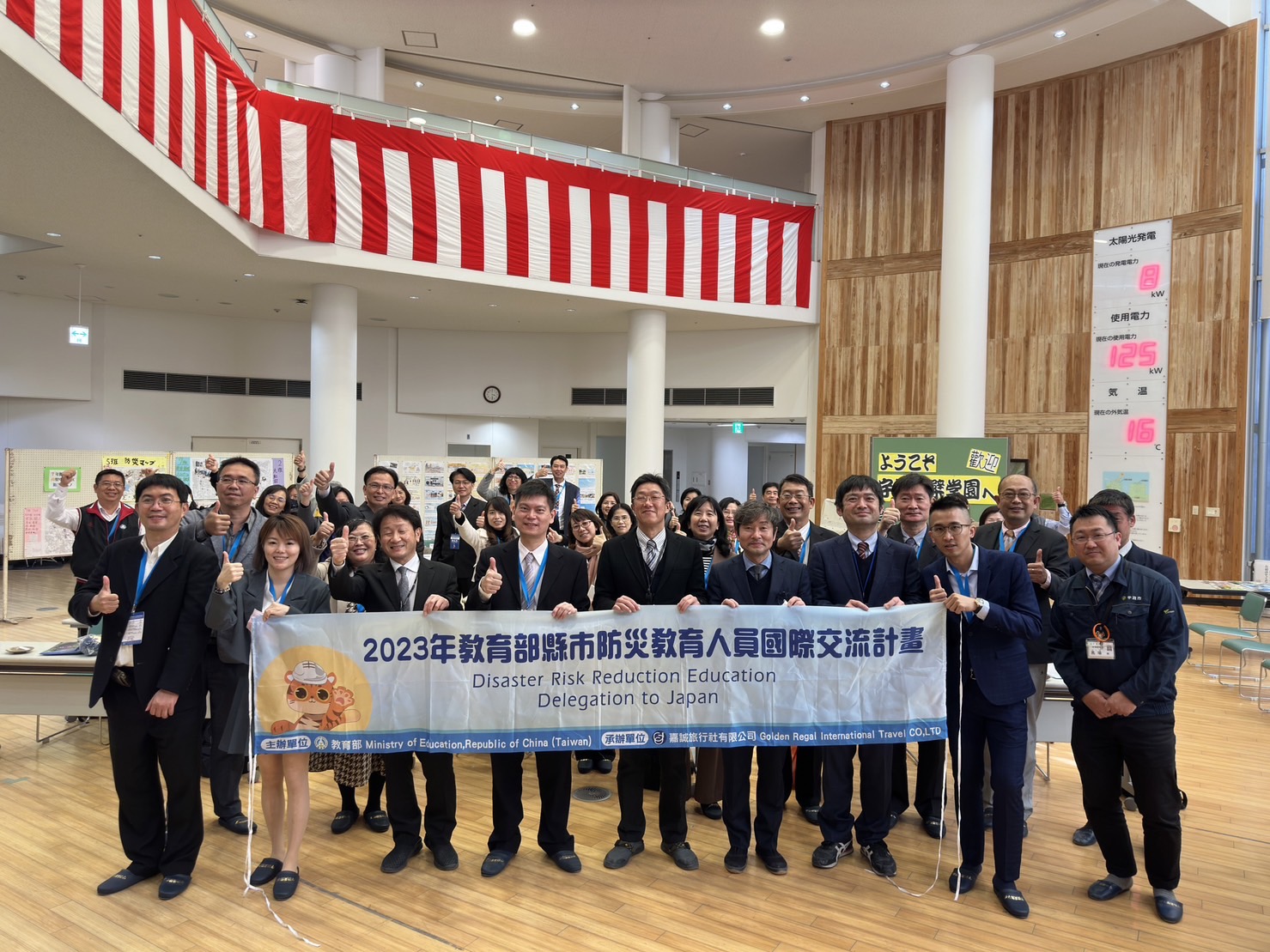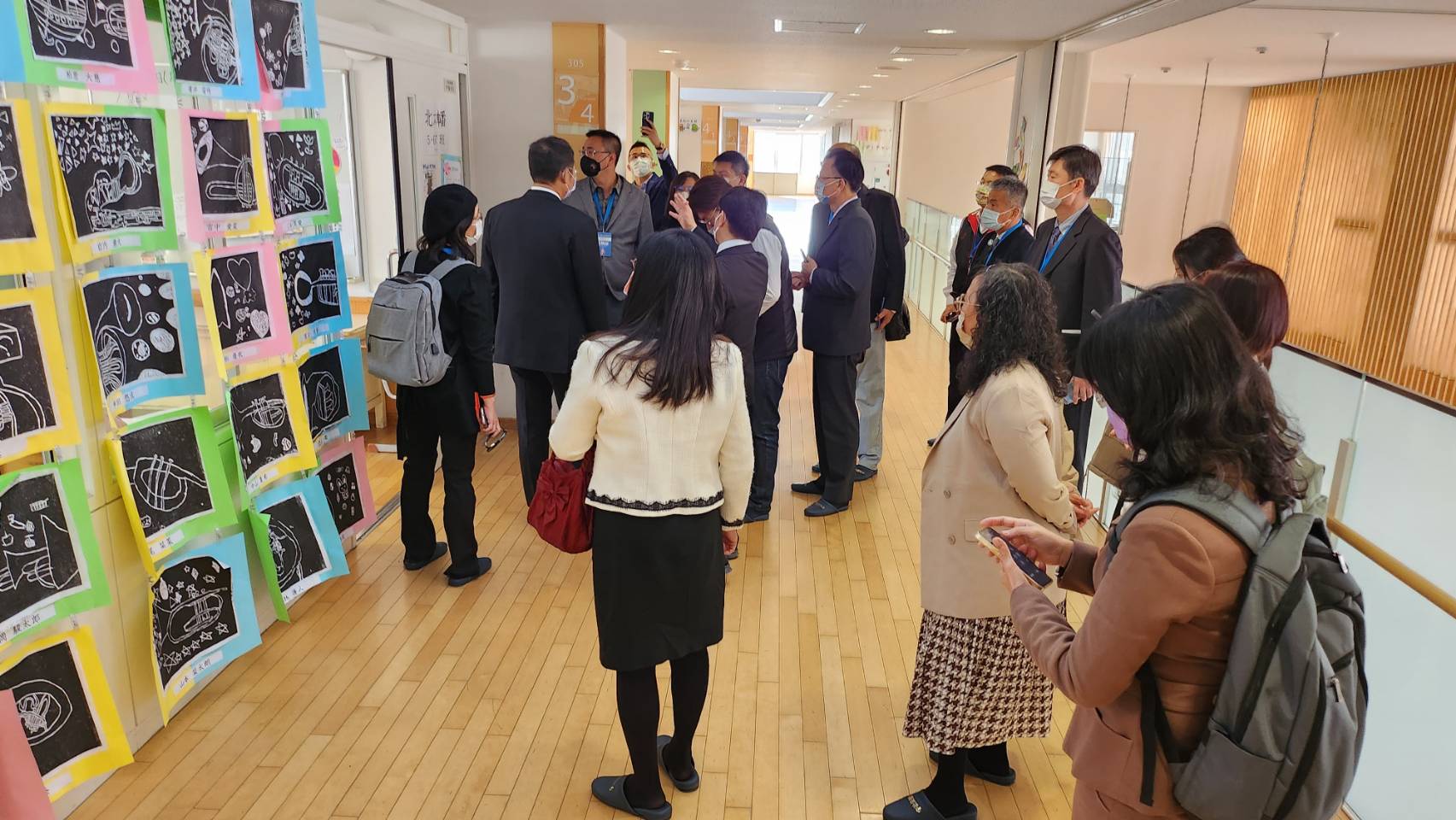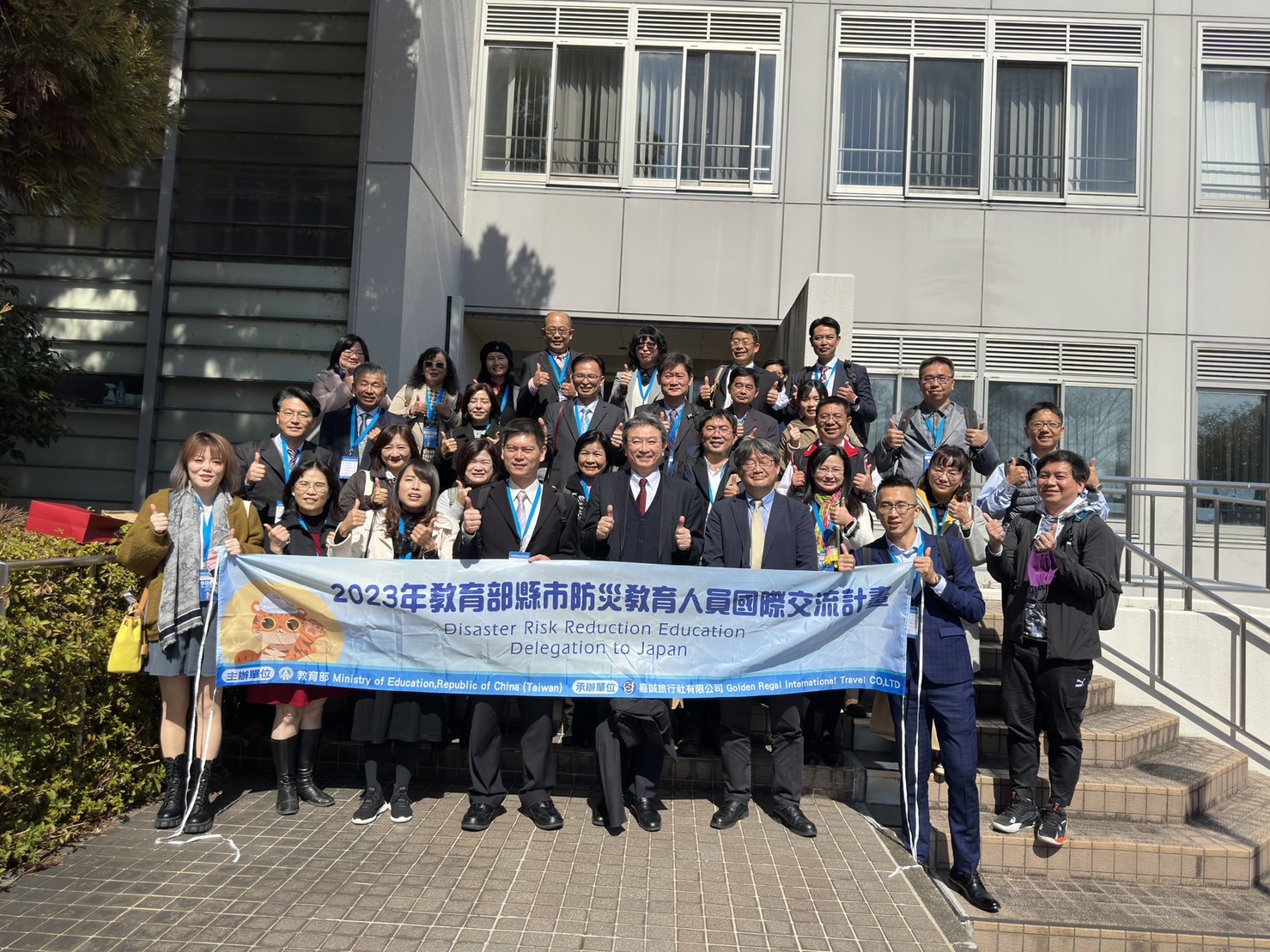Disaster Risk Prevention Educators Begins Overseas Exchange Activities
16.03.2023

Introduction
In order to provide international exchange opportunities for front-line teachers in Disaster Risk Reduction Education (DRRE), a delegation of 26 teachers and administrators from each local government and each special education school was sent to Kyoto and Kobe City, Japan, from March 5th to March 9th to demonstrate their achievements of DRRE and share their experiences at local memorials, research centers, elementary and junior high schools, and special education schools.
The Ministry of Education (MOE) expressed that global climate change has led to the frequent occurrence of extreme weather events and the increasing complexity of disaster patterns. The MOE is promoting a change in the concept of DRRE by replacing standard answers with well-judged and relevant principles, thus establishing a campus disaster management assessment system as the core framework for promoting disaster prevention in school. In recent years, the MOE has continued to provide counseling and resources to strengthen the organizational structure of DRRE and counseling teams and operations in all counties and cities, including teachers in the field of early childhood and special education as members of the counseling team, thus improving the organizational capacity of the disaster prevention education counseling team in each county and city government. The MOE stated that through the process of learning and experience exchange, the local governments' policies and measures and the effectiveness of schools' promotion of DRRE have been recorded, and that the knowledge and practices learned would be applied to practical needs upon returning to the Republic of China (R.O.C., Taiwan) to enhance their own DRRE promotion capabilities.
The overseas exchange program visited the Disaster Prevention Research Institute of Kyoto University, and met with the Director Eiichi Nakakita, Vice Director Uzuoka Ryosuke, and Professor Yamori Katsuya to discuss the current status of promoting international DRRE, as well as visiting various flood research facilities at the Ujigawa Open Laboratory. The team also plans to visit Uji Municipal Elementary School and Obaku Junior High School, Kyoto Municipal Shimogyo Miyabi Elementary School, and the Special Education School of Kyoto University of Education to learn more about disaster prevention drills for Japanese students at all levels of study. Exchanging experiences with Japanese school principals and teachers on DRRE and operation, and learning about disaster management measures and responses to disasters, such as disaster mitigation, preparedness, response and recovery are the main goals. In addition, the exchange program will meet with the Kyoto City Board of Education, and the two sides will discuss the policy direction and implementation strategy of DRRE in the form of panel discussions, as well as the cooperation and operation models between the government, schools, and local communities.
Japan and Republic of China (R.O.C., Taiwan) are both natural disaster-prone countries. In recent years, the MOE has continued to hold international seminars on DRRE, inviting Japanese scholars and Republic of China (R.O.C., Taiwan)’s teachers to exchange topics and discussions via video calls, to learn from international experience in promoting DRRE, and to deepen the disaster prevention partnership between the two countries through mutual exchanges and visits. The goal is to learn about Japanese humanities and society and disaster prevention and relief experience through various positive actions in order to deepen and broaden teachers' knowledge of this issue through incorporating discussion on topics, such as early childhood, special education, indigenous peoples, and Youth Envoys for DRRE. Overall, the international exchange opportunities will enhance schools' ability to respond to disasters with the end outcome being that DRRE will take root in both countries.




